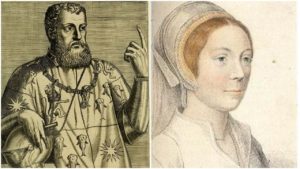 On 11th November 1534, Philippe de Chabot, Seigneur De Brion and Admiral of France, landed on English soil. The purpose of the diplomatic mission he was leading was to renew Anglo-French relations. George Boleyn, Lord Rochford and brother of Queen Anne Boleyn, was chosen to meet the admiral and escort him from Dover to London.
On 11th November 1534, Philippe de Chabot, Seigneur De Brion and Admiral of France, landed on English soil. The purpose of the diplomatic mission he was leading was to renew Anglo-French relations. George Boleyn, Lord Rochford and brother of Queen Anne Boleyn, was chosen to meet the admiral and escort him from Dover to London.
As Clare Cherry and I point out in our biography of George Boleyn, England had become “more and more isolated from her European cousins” due to Henry VIII’s annulment of his marriage to Catherine of Aragon, his break with Rome and his marriage to Anne Boleyn, so this French embassy was hugely significant.
You can read an article about the admiral’s visit and George’s involvement by clicking here.
Also on this day in history, 11th November 1541, Henry VIII’s council sent Archbishop Thomas Cranmer a letter containing instructions to move Queen Catherine Howard from Hampton Court Palace to Syon House, formerly Syon Abbey. Find out more about this in today’s video:
